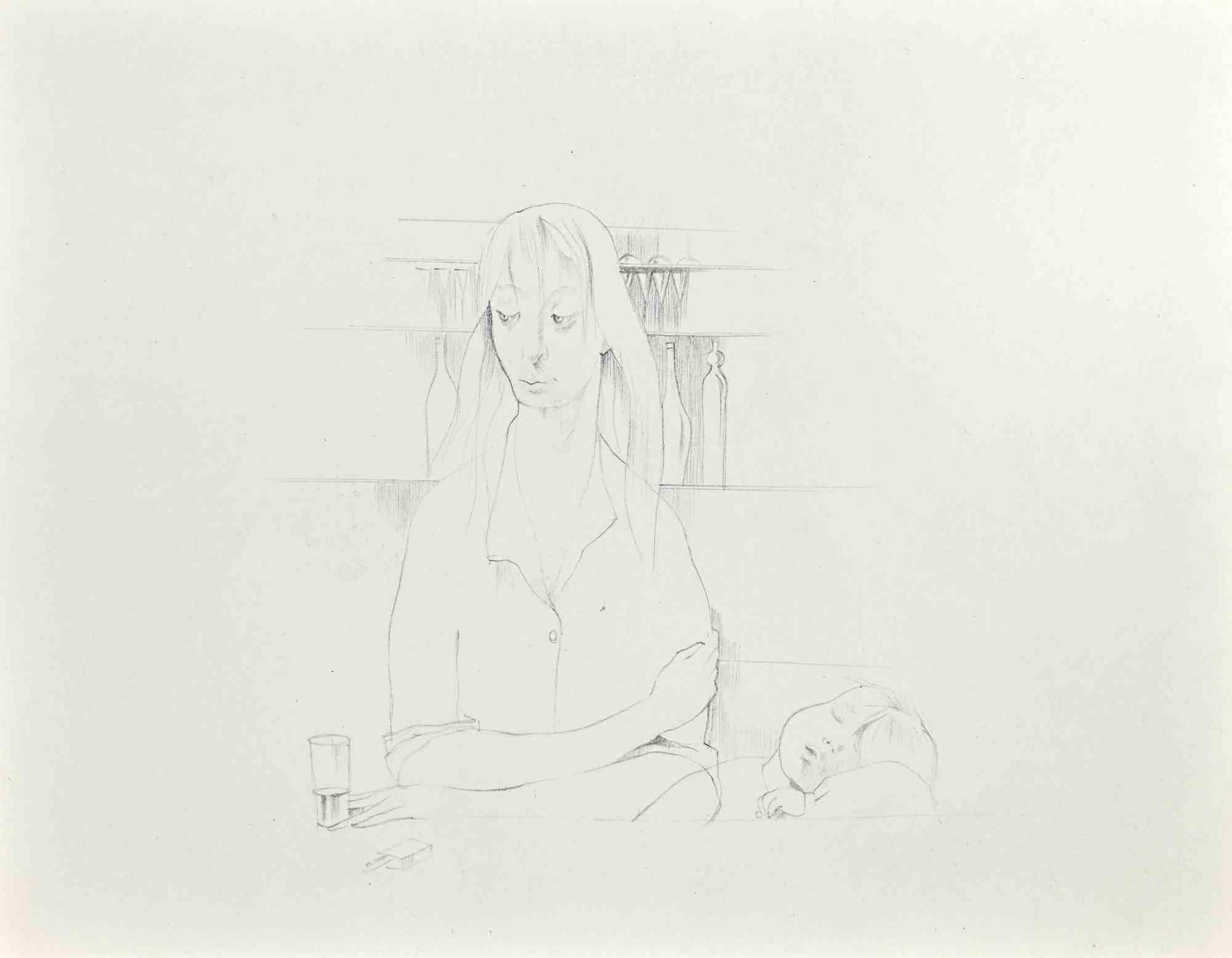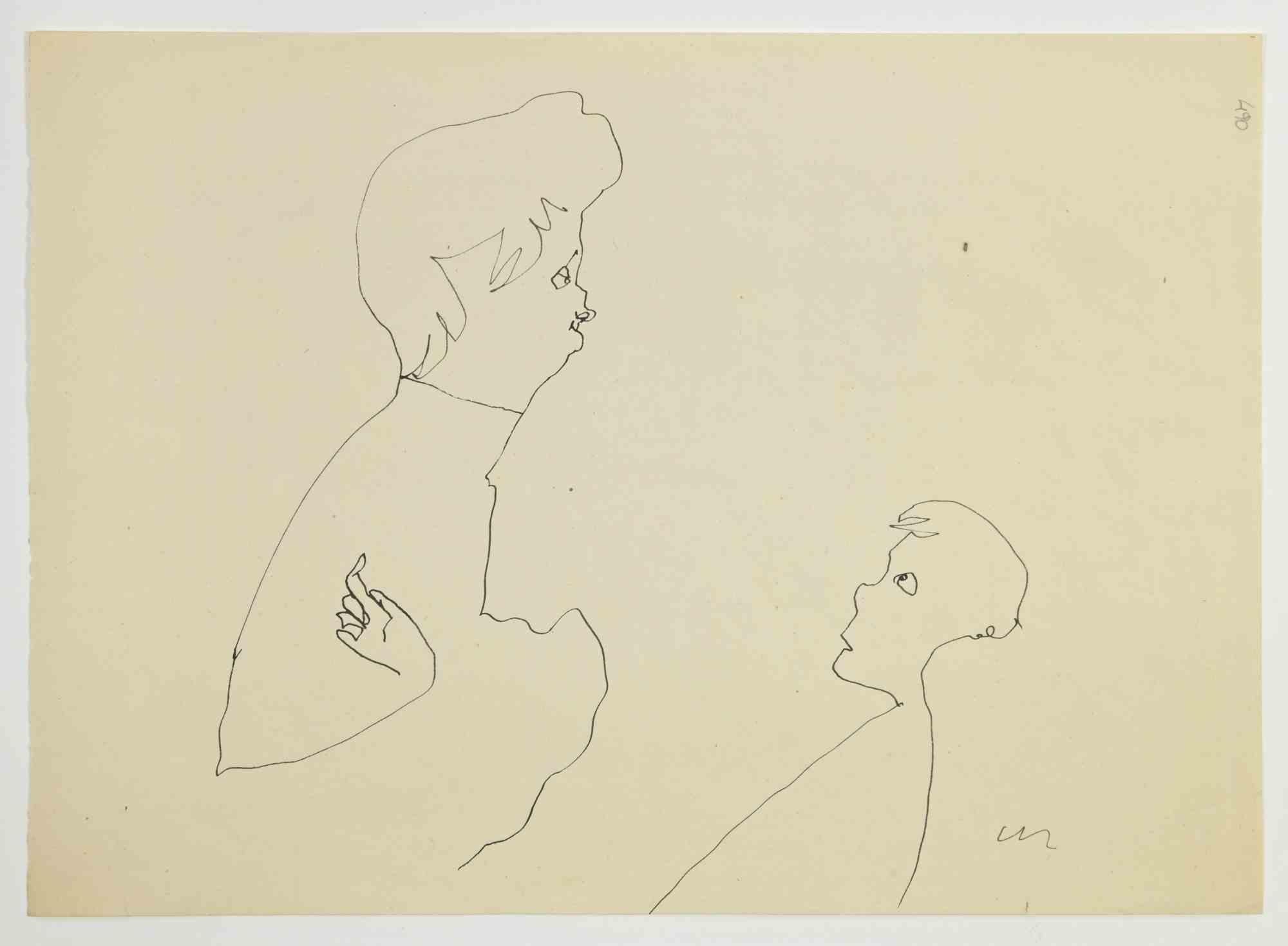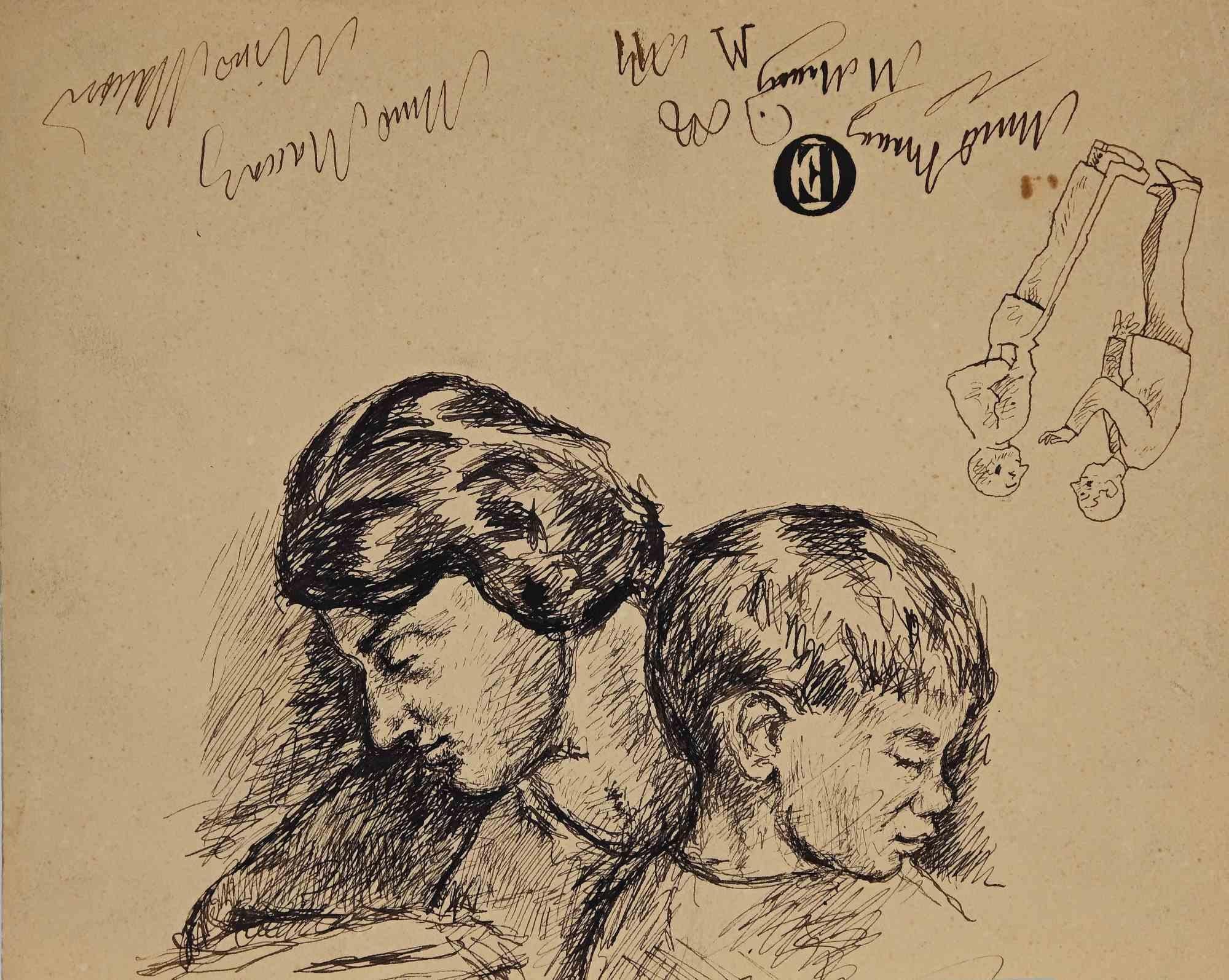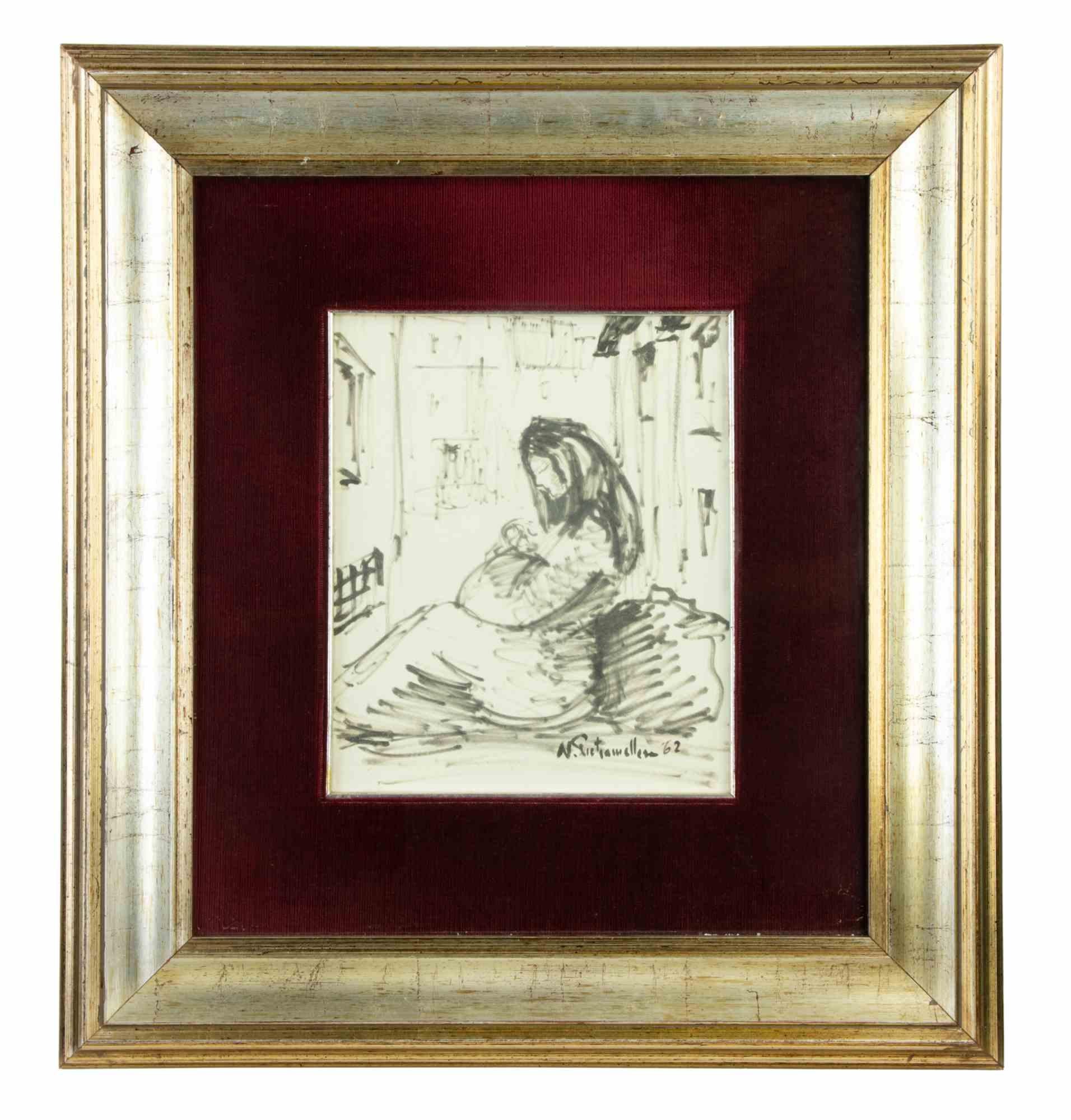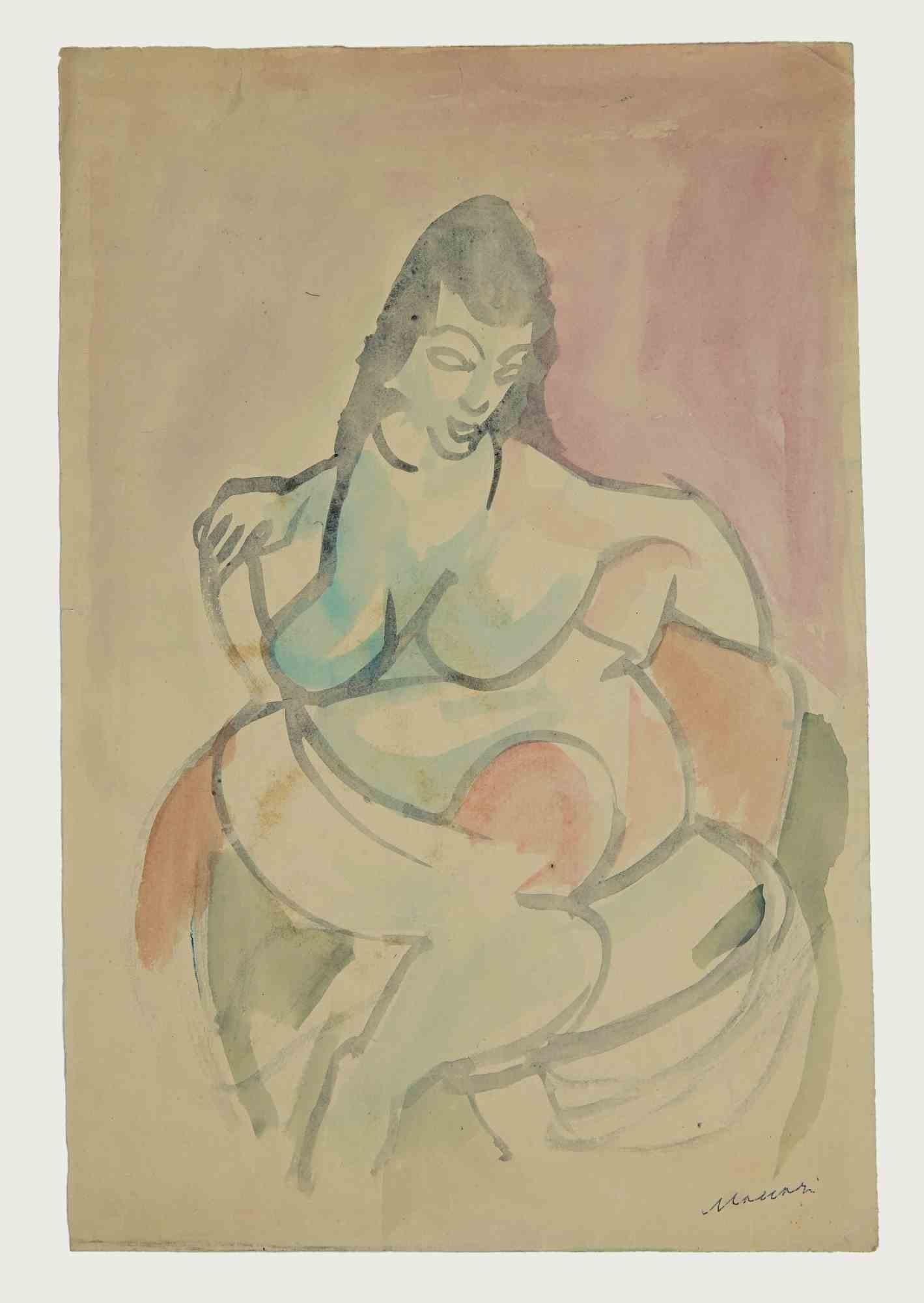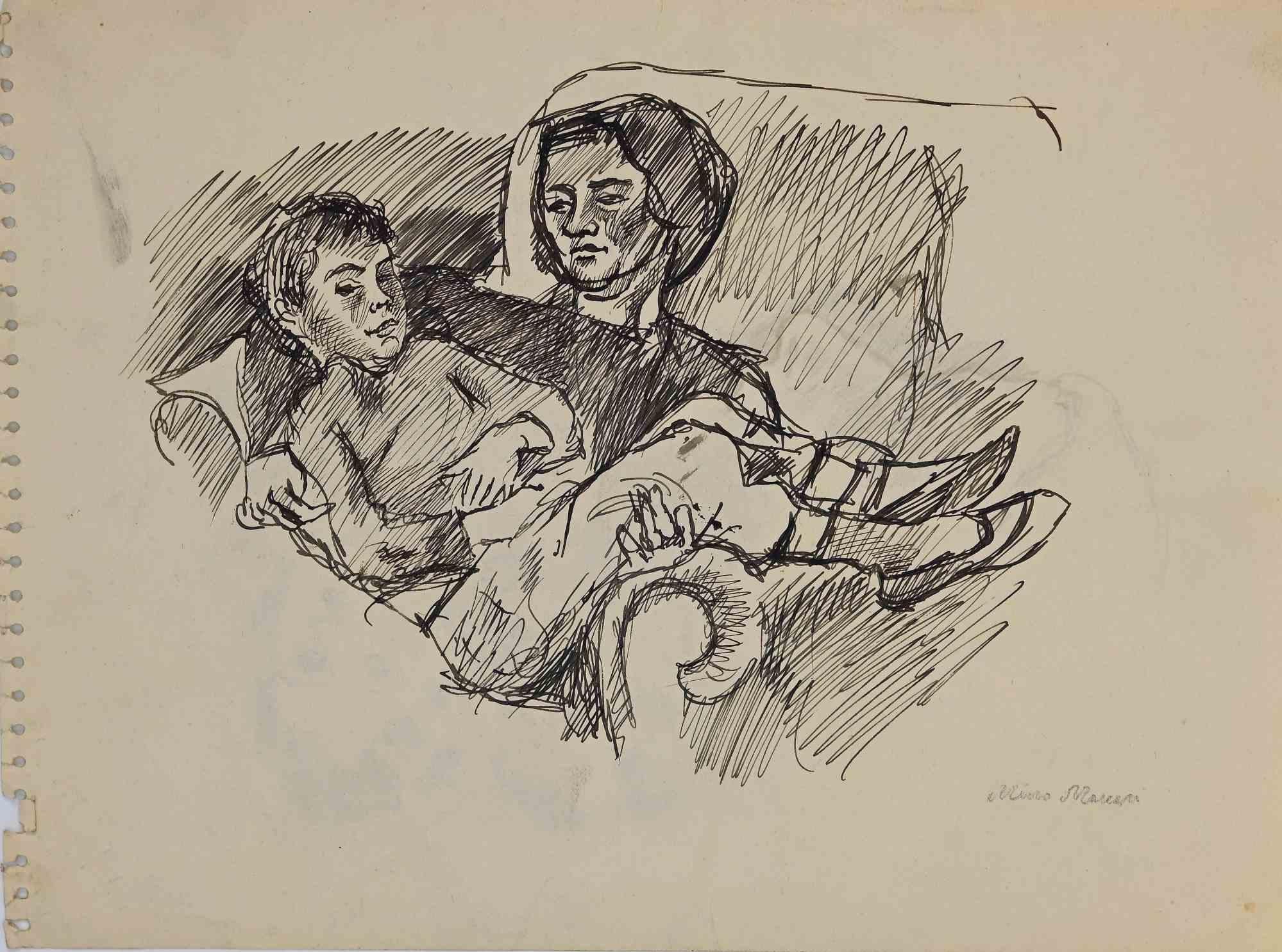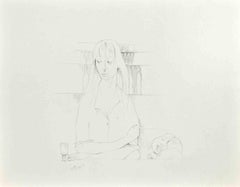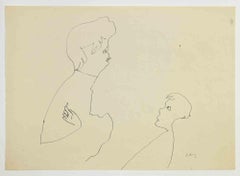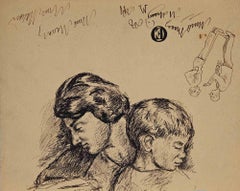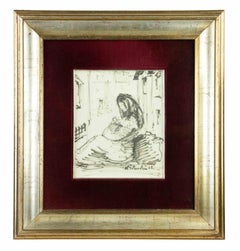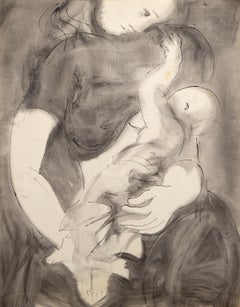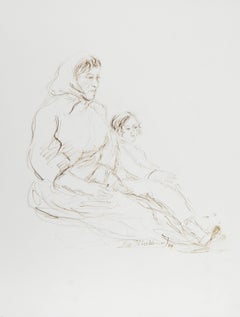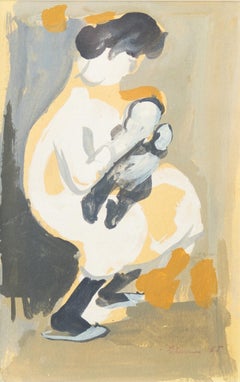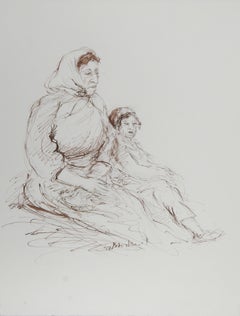Items Similar to Mother and Child - Drawing on Paper by Buscot - 1950s
Want more images or videos?
Request additional images or videos from the seller
1 of 2
BuscotMother and Child - Drawing on Paper by Buscot - 1950s1950s
1950s
$657.71
£489.54
€550
CA$915.23
A$998.29
CHF 524.43
MX$12,077.22
NOK 6,560.73
SEK 6,194.64
DKK 4,187.48
About the Item
Mother and child is an artwork realized by Buscot, dim-20th century.
Pencil drawing, 27 x 21 cm.
Handsigned on the back.
Good conditions, exept for a fold on the lower margin.
- Creator:Buscot (French)
- Creation Year:1950s
- Dimensions:Height: 10.63 in (27 cm)Width: 8.27 in (21 cm)
- Medium:
- Movement & Style:
- Period:
- Framing:Framing Options Available
- Condition:Insurance may be requested by customers as additional service, contact us for more information.
- Gallery Location:Roma, IT
- Reference Number:Seller: T-1428401stDibs: LU650313209652
About the Seller
4.9
Platinum Seller
Premium sellers with a 4.7+ rating and 24-hour response times
1stDibs seller since 2017
7,724 sales on 1stDibs
Typical response time: 2 hours
- ShippingRetrieving quote...Shipping from: Grasse, France
- Return Policy
Authenticity Guarantee
In the unlikely event there’s an issue with an item’s authenticity, contact us within 1 year for a full refund. DetailsMoney-Back Guarantee
If your item is not as described, is damaged in transit, or does not arrive, contact us within 7 days for a full refund. Details24-Hour Cancellation
You have a 24-hour grace period in which to reconsider your purchase, with no questions asked.Vetted Professional Sellers
Our world-class sellers must adhere to strict standards for service and quality, maintaining the integrity of our listings.Price-Match Guarantee
If you find that a seller listed the same item for a lower price elsewhere, we’ll match it.Trusted Global Delivery
Our best-in-class carrier network provides specialized shipping options worldwide, including custom delivery.More From This Seller
View AllPortrait of Mother and Child - Drawing on Paper by Buscot - 1950s
By Buscot
Located in Roma, IT
Portrait of Mother and child is an artwork realized by Buscot, in the mid-20th century.
Pencil drawing, 27 x 21 cm.
Handsigned on the back.
Good condition, exept for a fold on t...
Category
Mid-20th Century Figurative Drawings and Watercolors
Materials
Paper, Pencil
The Mother and Boy - Drawing by Mino Maccari - 1960s
By Mino Maccari
Located in Roma, IT
The Mother and Boy is a Pen Drawing realized by Mino Maccari (1924-1989) in the 1960s.
Monogrammed on the lower.
Good condition.
Mino Maccari (Siena, 1924-Rome, June 16, 1989) wa...
Category
1960s Modern Figurative Drawings and Watercolors
Materials
Pen
Mother and Child - Drawing by Mino Maccari - Mid 20th Century
By Mino Maccari
Located in Roma, IT
Mother and Child is an original Pen Drawing realized by Mino Maccari in mid-20th Century.
Good condition on a yellowed paper.
Hand-signed by the artist with pencil.
Mino Maccari (...
Category
Mid-20th Century Modern Figurative Drawings and Watercolors
Materials
Paper, Charcoal
Mother and Child - Drawing - 1962
Located in Roma, IT
Mother and Child is an artwork realized by an unknown artist in 1962.
Black Marker Pen on Cardboard
27.5 x 22.5 cm ; 60 55 cm with frame.
Unreadable signature in the lower part.
...
Category
1960s Contemporary Figurative Drawings and Watercolors
Materials
Board, Pen
Mother and Child - Drawing by Mino Maccari - Mid 20th Century
By Mino Maccari
Located in Roma, IT
Mother and Child is an China Ink and Watercolor realized by Mino Maccari in the Mid-20th Century.
Good condition on a yellowed paper.
Hand-signed by the artist with pen.
Mino Macc...
Category
Mid-20th Century Modern Figurative Drawings and Watercolors
Materials
Watercolor, Ink
Mother and Child - Drawing by Mino Maccari - Mid 20th Century
By Mino Maccari
Located in Roma, IT
Mother and Child is an original China Ink Drawing realized by Mino Maccari in mid-20th Century.
Good condition on a yellowed paper, some sketches on the back.
Hand-signed by the ar...
Category
Mid-20th Century Modern Figurative Drawings and Watercolors
Materials
Paper, Ink
You May Also Like
Mother & Child, Modern Gouache and Graphite on Paper by Sidney Simon
Located in Long Island City, NY
Sidney Simon, American (1917 - 1997) - Mother & Child, Year: circa 1960, Medium: Gouache and Graphite on Paper, signed lower left, Size: 23.75 x 18.75 in. (60.33 x 47.63 cm)
Category
1960s Modern Nude Drawings and Watercolors
Materials
Gouache, Graphite
Mother and Child - I, Modern Ink on Paper by Ira Moskowitz
By Ira Moskowitz
Located in Long Island City, NY
Ira Moskowitz, Polish/American (1912 - 2001) - Mother and Child - I, Year: circa 1989, Medium: Ink on Paper, signed, Size: 13 in. x 10 in. (33.02 cm x 25.4 cm), Description: Sittin...
Category
1980s Modern Portrait Drawings and Watercolors
Materials
Ink
Mother and Baby Watercolor
Located in Austin, TX
By Gustav Likan
8" x 5" Watercolor on Paper
Framed Size: 15.75" x 12.5"
A mother holding a and comforting her baby.
1965
This piece is part of Likan's series depicting his wife Bar...
Category
1960s Modern Figurative Drawings and Watercolors
Materials
Watercolor, Archival Paper
Mother and Child - II, Modern Ink on Paper by Ira Moskowitz
By Ira Moskowitz
Located in Long Island City, NY
Ira Moskowitz, Polish/American (1912 - 2001) - Mother and Child - II, Year: circa 1989, Medium: Ink on Paper, signed, Size: 13 in. x 10 in. (33.02 cm x 25.4 cm), Description: Sitti...
Category
1980s Modern Portrait Drawings and Watercolors
Materials
Ink
Mother with Child
By Katherine Librowicz
Located in Surfside, FL
Katarzyna LIBROWICZ
Polish French painter studied at the Academy of Fine Arts in Warsaw and arrived in France in 1937 .
She studied with André Lhote in Montparnasse Paris and exhibited at the Salon d'Automne and the Salon des Independants .
She is one of the painters of the School of Paris .
Peintre polonaise.Elle étudia à l'Académie des Beaux-Arts de Varsovie, puis arriva en France en 1937.
Elle suivit les...
Category
20th Century Figurative Drawings and Watercolors
Materials
Watercolor
Mother and Child - III, Folk Art Ink on Paper by Ira Moskowitz
By Ira Moskowitz
Located in Long Island City, NY
Ira Moskowitz, Polish/American (1912 - 2001) - Mother and Child - III, Year: 1989, Medium: Ink on Paper, signed, Size: 13 in. x 10 in. (33.02 cm x 25.4 cm), Description: Holding he...
Category
1980s Folk Art Portrait Drawings and Watercolors
Materials
Ink
More Ways To Browse
Mid Century Mother And Child Art
Gibson Girl
Head Of Woman Drawing
Simon Sparrow
Antique Lead Pencils
Bernard Becan
Black Fashion Illustration
Frank Girard
Golf Watercolor Art
Hirschfeld Ink
Mermaid Drawing
Mogniat Duclos
Nineteenth Century Drawings
Architectural Drawing Study
Cigarette Pack
Rolling Stones World Tour Poster
Vermont Winooski
Vintage Drawing Ideas
